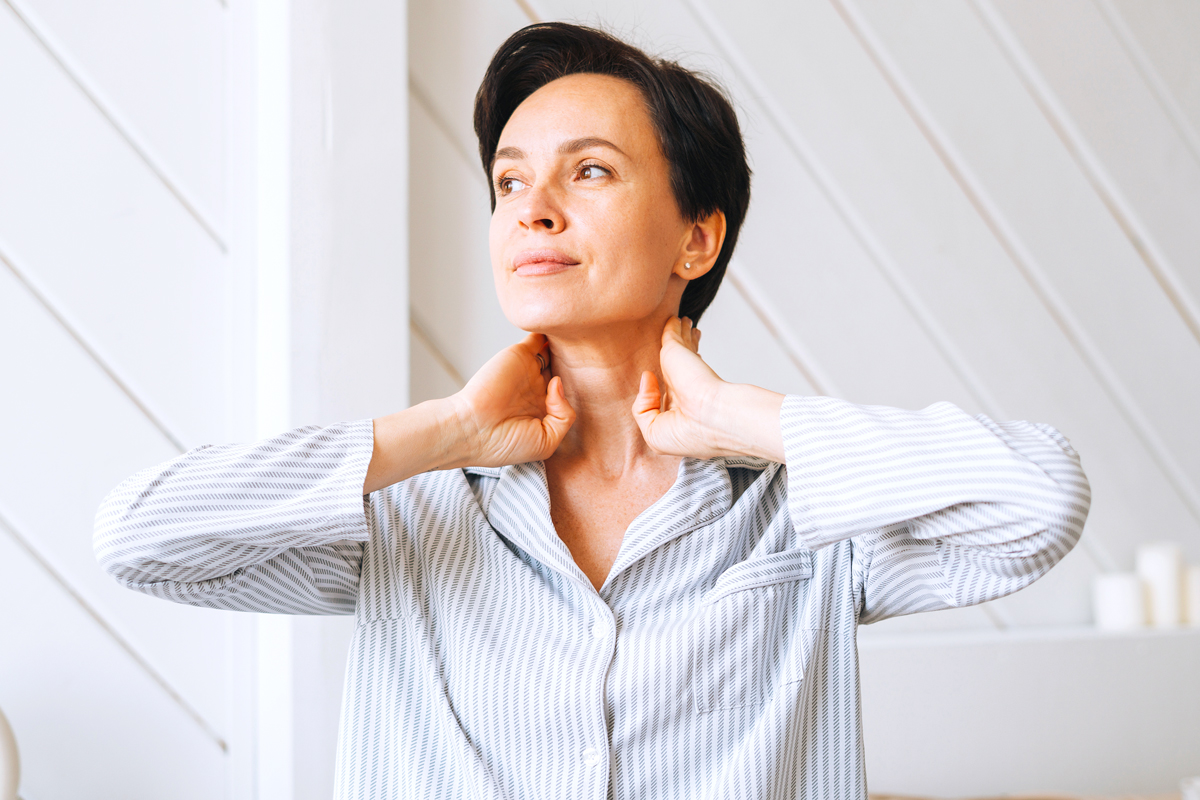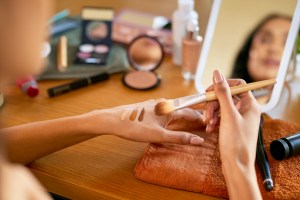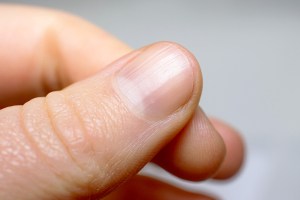You’ve probably heard experts say that, skin care doesn't stop at the jawline. But is that for just hydration or also for potentially irritating actives like retinol? Let’s get to the bottom of it.
As a refresher, retinol is a vitamin A derivative that is clinically proven to accelerate cell turnover, reduce the appearance of fine lines and wrinkles, improve skin laxity and collagen production, and more. “These benefits aren’t just for the skin on your face, but on the decolletage, too,” says Melanie Palm, M.D., MBA, a board-certified dermatologist and cosmetic surgeon based in San Diego, California. “I encourage patients with mature skin to extend retinol application to their neck and chest areas, especially since the skin on the decolletage is often forgotten when it comes to skin care.”
Beverly Hills-based dermatologist Jessica Wu, M.D., cosigns this idea, adding, “The skin on these other areas is just as vulnerable to thinning skin due to collagen loss, especially as our estrogen levels drop. Retinol is also helpful for brightening skin tone and reducing sun damage, which can affect any sun-exposed skin.” To this end, Dr. Wu tells patients to treat their hands with retinol products, too.
While there are plenty of body serums and moisturizers made with retinol, Dr. Palm notes that a dedicated retinol product for the neck and decolletage may not be necessary. “In most cases, you can extend the product you’re using on your face into the neck and chest. Serums are generally the most potent form of skin care, so these will be the most effective. However, those with more sensitive skin types may find that a cream formula will be less harsh,” she says.
Because the skin on our necks and chests is thinner and doesn’t have the oil glands found on facial skin, Dr. Wu says an emollient cream with retinol may be more comfortable to use than a retinol serum, thanks to hydrating ingredients that can help buffer against redness and irritation.
But there’s no one-size-fits-all solution here. The dermatologist also points out that a heavier cream or oil can worsen breakouts for those who experience hormonal acne on the chest. In this case, a lighter lotion or serum is key.
Those with sensitive skin may benefit best from combining retinol with bakuchiol, a plant-based retinol alternative. “This combination has a synergistic effect with one another, and the bakuchiol may help calm some of the retinoid dermatitis such as redness, irritation, and dryness that the patient may have when adapting to the cream,” Dr. Palm says.
If you’re using retinol products on the chest and neck for the first time, start with applications a few evenings a week on clean skin and layered under an emollient moisturizer, our experts say. Since retinol products can trigger irritation, those with skin conditions including eczema, psoriasis, or contact dermatitis in the decolletage area should consult with their dermatologist before using retinol products, as they can worsen these conditions.
What’s more, know that retinol is contraindicated in pregnancy, so those who are pregnant should pass on retinol use anywhere on the body. Finally, Dr. Palm reminds us to keep these areas top of mind when protecting skin during the day. “It’s important to remember that regular retinol application can result in photosensitivity and dryness, so it is critical to protect these areas with a broad-spectrum sunscreen and moisturize frequently to protect the skin barrier,” she says. It’s another great reason not to skip SPF.
This article is for general informational purposes only.
Affiliate Disclaimer Medical Disclaimer
















 Unique Beauty is free for all users.
Unique Beauty is free for all users.